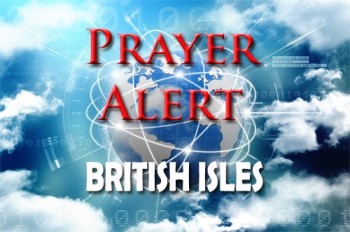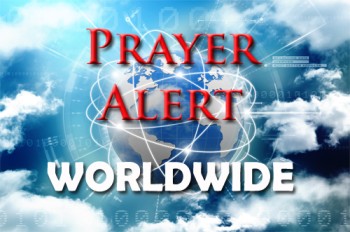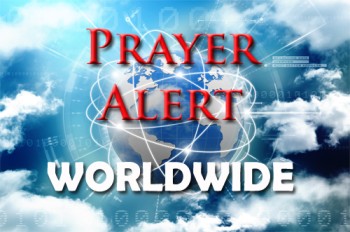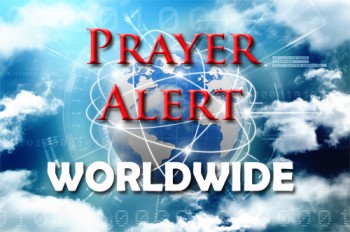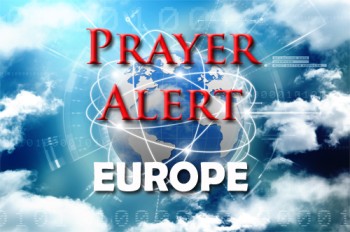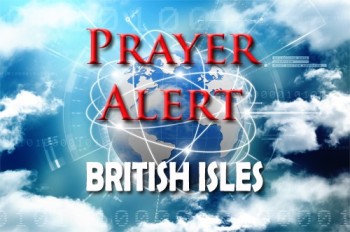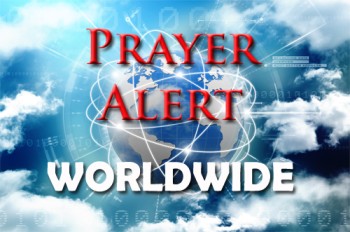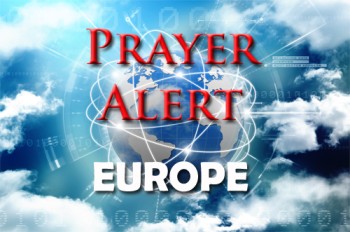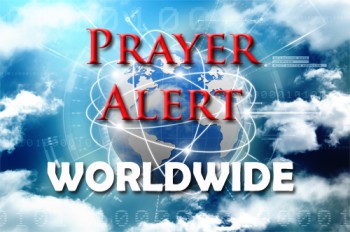Displaying items by tag: threats
We need more people ready to fight, military chief says
Chief of the Defence Staff, Air Chief Marshal Sir Richard Knighton, has warned that the nation needs more people prepared to defend the country amid growing global instability and rising threats from Russia. He called for a 'whole-of-society response' to deter conflict, stressing the importance of strengthening regular forces, reserves, cadets, and the defence workforce. While he said the likelihood of a direct Russian attack on the UK remains remote, he highlighted intensifying hybrid threats, including cyber-attacks, suspected sabotage, and hostile surveillance near UK waters. He described Russia’s military as increasingly sophisticated, combat-experienced, and expanding in hard power, despite setbacks in Ukraine. The UK, he said, must become a 'harder target' to avoid war rather than provoke it. Building national resilience, he argued, goes beyond military strength and includes universities, industry, energy, healthcare, and manufacturing. With defence spending set to rise sharply, he emphasised the need to inspire young people to pursue careers supporting national security. Recent investments include £50 million for new defence technical colleges to address critical skills gaps.
Venezuela / USA: Trump’s increasing pressure on Maduro
On 21 November, weeks of escalating threats, military posturing, and diplomatic tension culminated not in conflict but in a stark phone call in which Donald Trump reportedly issued Nicolás Maduro an ultimatum: leave Venezuela immediately or face the consequences. This shows that Trump is not easing pressure and may be edging closer to military action, despite earlier signs of potential compromise through envoy Richard Grenell’s negotiations which freed US detainees and reopened migrant returns. Analysts note that while advisers like Marco Rubio influence policy, Trump himself has long viewed Venezuela as unfinished business touching on his key concerns - migration, drugs, and China. Trump’s resort to a threatening phone call may in itself be a response to the Venezuelan armed forces’ refusal to buckle before the overwhelming US military presence. Experts warn that a ‘decapitation strike’ targeting Maduro is conceivable, with the justification that he is an illegitimate leader after stealing two elections. Observers say Trump is using intimidation to force concessions while leaving the door open to rapid escalation.
Venezuela: Maduro announces mass mobilisation in response to US threats
Nicolás Maduro has announced the mobilisation of more than four million civilian militia fighters, responding to what he describes as escalating threats from the USA. He pledged to arm and activate militias across the country, reinforcing national sovereignty against US actions. His remarks followed the Trump administration’s decision to double its bounty for his arrest to $50 million. While US officials accuse Maduro of leading a cocaine smuggling network known as the Cartel de los Soles, no direct evidence has been publicly presented. Venezuela’s militia system, created under former president Hugo Chávez, claims millions of members, though analysts question the figures. Meanwhile, the US military has dispatched three destroyers to the southern Caribbean as part of an expanded campaign against drug cartels in Latin America. The standoff reflects years of strained relations between Caracas and Washington, marked by sanctions, contested elections, and allegations of corruption.
North Korea: strong criticism of proposed new US missile defence system
North Korea has strongly condemned the US plan to develop a futuristic ‘Golden Dome’ missile defence system, warning it could trigger a nuclear arms race in space. The system, promoted by Donald Trump to counter next-generation threats such as hypersonic and cruise missiles, is viewed by Pyongyang as a provocation that would undermine its nuclear deterrent. North Korea’s foreign ministry described the plan as arrogant and dangerous, while China has called it a threat to global stability, saying the USA is ‘obsessed’ with its own security. Analysts note the system could compel North Korea to advance its missile capabilities. While many experts agree that US defence infrastructure needs updating, critics point to the potential geopolitical fallout and high costs - estimated at up to $500 billion long-term. Strategic tensions over space militarisation continue to grow as nations grapple with balancing national defence and global security.
Japan: new premier calls snap election
Shigeru Ishiba, Japan’s newly-appointed prime minister, has dissolved parliament and announced snap elections for 27 October. His Liberal Democratic Party (LDP), along with its coalition partner, is expected to win, capitalising on Ishiba's early popularity and a fragmented opposition. He wants to revitalise rural regions affected by Japan's demographic crisis, and aims to create a ‘new Japan’ with increased support for families and flexible work policies. Facing a complex security landscape, including threats from China, Russia, and North Korea, Ishiba plans to expand Japan’s defence capabilities. Ishiba has proposed economic stimulus, particularly for local governments and low-income households, as part of his strategy to lead the country out of deflation. His call for an early election seeks to solidify his mandate before political momentum wanes, while distancing himself from scandals that plagued his unpopular predecessor.
Cyprus / Israel / Lebanon: Hezbollah leader threatens wider conflict
Hezbollah leader Sayyed Hassan Nasrallah has warned that no place in Israel would be safe if a full-scale war erupts between the two foes, also threatening Cyprus and other Mediterranean regions. Hezbollah has released drone footage of sensitive Israeli military sites; Nasrallah says that it has a ‘bank of targets’ for precision strikes, and Israel must prepare for attacks by land, air, and sea. He also threatened Cyprus, accusing it of aiding Israel with its airports and bases for military exercises. There was no immediate response from Cypriot authorities; Cyprus has historically allowed Israel to use its airspace for drills, but not its land or bases. In another development, Benjamin Netanyahu has dissolved his war cabinet after two of his opponents resigned from it: see
Liz Truss’s trip a ‘dangerous stunt’
London’s Chinese embassy called Liz Truss’s trip to Taiwan a ‘dangerous political stunt’ which will bring nothing but harm to the UK. In a pre-briefed extract of her speech to the Prospect Foundation, Truss was expected to say, ‘Last summer Rishi Sunak described China as the biggest long-term threat to Britain, and he promised to close all thirty of UK’s Confucius Institutes, which promote Chinese culture on campus in higher education and in some British schools. Sunak was right; we need to see those policies enacted urgently. Confucius Institutes must close, and the service supplied by Hong Kong and Taiwanese nationals in the UK on a free basis.’ The embassy urged Truss to stop supporting ‘Taiwan independence’. Taiwan has been separate from the People’s Republic of China since 1949, but Beijing insists on reuniting Taiwan with the mainland, by force if necessary.
Brazil: Bolsonaro leads massive rallies
President Bolsonaro has delivered fiery speeches to tens of thousands of supporters at rallies ahead of a divisive election on 2 October when opinion polls suggest he will be defeated. Bolsonaro has repeatedly attacked Supreme Court justices, alleging (without any evidence) that Brazil’s electronic voting system is vulnerable to widespread fraud. Legal experts have rejected that allegation, and critics accuse him of sowing doubt ahead of the election to dispute the results, as was done by Donald Trump, whom Bolsonaro has emulated. ‘Bolsonaro, activate the military to depose the Supreme Court,’ said one banner carried by Suely Ferreira who said, ‘Our country is being ruined by the high court’s dictatorship. We love our president. Everyone I know supports him. He will win. There’s no way he could lose.’ The president’s attacks on the voting system have stirred calls for a military coup from some more radical backers, fuelling concerns that the nation could see election-related violence.
Russia: 'blackmailing the world'
Ukraine's nuclear agency Enerhoatom says the Russians are ‘blackmailing the entire world’ with threats to blow up the Zaporizhzhia power plant. In a post on messaging app Telegram, Enerhoatom says Maj Gen Valery Vasiliev - the head of Russia's radiation, chemical and biological defence forces - has said, ‘There will be either Russian land or a scorched desert. We have mined all the important facilities of the Zaporizhzhia nuclear power plant.’ UN secretary general António Guterres has called for international inspectors to be given access to the power plant, after Ukraine and Russia accused each other of shelling the site on 7 August. One of Putin's closest allies, former president Medvedev, has been telling the media that Russia will achieve its aims in the conflict in Ukraine on its own terms. He warns the West has a long-term plan to destroy Russia.
Solomon Islands: the Framework Agreement
On 25 March the Solomon Islands government announced it was ‘expanding’ security arrangements, ‘diversifying the country's security partnership with China’. Beijing is moving from island to island and wants to upgrade an airstrip in Kiribati for civilian purposes; yet the military uses are apparent. Kiribati is 1,900 miles south of Hawaii. A five-year deal, with automatic renewals, will allow Beijing to base its military in the Solomon Islands. If applied to its full extent, the Framework Agreement will give China the ability to sever shipping lanes and air links connecting the USA with its treaty ally Australia and partner New Zealand. For decades the US allowed Canberra and Wellington to manage the Solomons and its region. Beijing, through payoffs now detailed in public, essentially owns the Solomon Islands government. There is also now talk that China will ink a security agreement with Papua New Guinea, just north of Australia.
